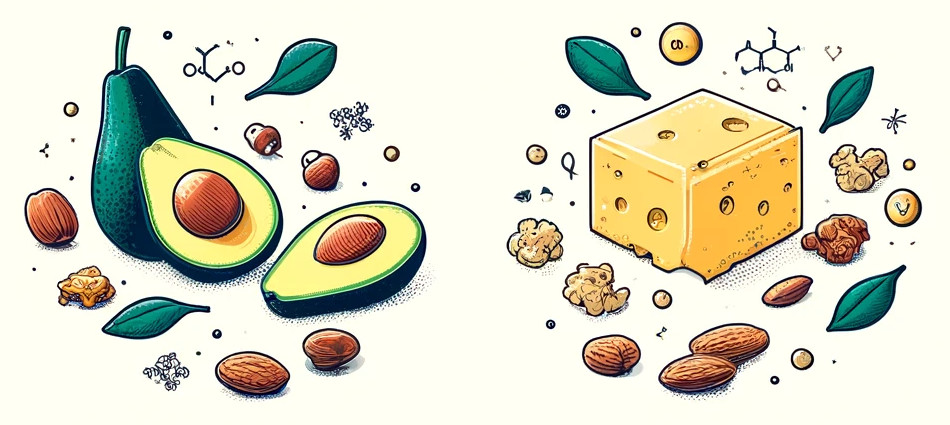
Fatty acids are components of the fats in our food that play an important role in various bodily functions. There are two main types of fatty acids: unsaturated and saturated fatty acids, which differ in their chemical structure and effects on health.
Unsaturated Fatty Acids
Unsaturated fatty acids have one or more double bonds in their carbon chain, which makes them liquid at room temperature. They are divided into monounsaturated and polyunsaturated fatty acids, which also include omega-3 and omega-6 fatty acids. Sources of unsaturated fatty acids include vegetable oils, nuts, seeds and fish. These fatty acids can help reduce the risk of heart disease and are important for brain function as well as cell development.
Saturated Fatty Acids
Saturated fatty acids do not contain double bonds between carbon atoms and are solid at room temperature. They are mainly found in animal products such as meat, butter and cheese, as well as in some vegetable fats such as coconut and palm oil. Although they can be consumed in moderate amounts in a balanced diet, high consumption is associated with an increased risk of heart disease and elevated cholesterol levels.
Importance of Fatty Acids in the Diet
A balanced diet should include a higher proportion of unsaturated fatty acids and a lower proportion of saturated fat. Recommendations include eating plenty of fruits, vegetables, whole grains, lean protein, and healthy fats. Choosing healthier sources of fat and raising awareness about fatty acid intake can reduce the risk of heart disease and improve overall well-being.